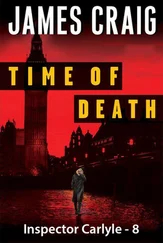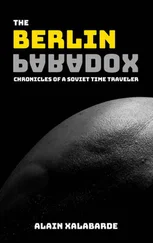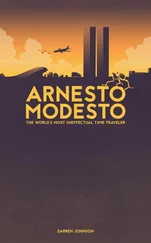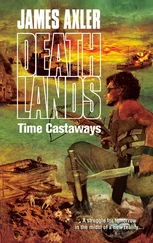James Gleick - Time Travel
Здесь есть возможность читать онлайн «James Gleick - Time Travel» — ознакомительный отрывок электронной книги совершенно бесплатно, а после прочтения отрывка купить полную версию. В некоторых случаях можно слушать аудио, скачать через торрент в формате fb2 и присутствует краткое содержание. Год выпуска: 2016, Издательство: Knopf Doubleday Publishing Group, Жанр: Старинная литература, на английском языке. Описание произведения, (предисловие) а так же отзывы посетителей доступны на портале библиотеки ЛибКат.
- Название:Time Travel
- Автор:
- Издательство:Knopf Doubleday Publishing Group
- Жанр:
- Год:2016
- ISBN:нет данных
- Рейтинг книги:5 / 5. Голосов: 1
-
Избранное:Добавить в избранное
- Отзывы:
-
Ваша оценка:
- 100
- 1
- 2
- 3
- 4
- 5
Time Travel: краткое содержание, описание и аннотация
Предлагаем к чтению аннотацию, описание, краткое содержание или предисловие (зависит от того, что написал сам автор книги «Time Travel»). Если вы не нашли необходимую информацию о книге — напишите в комментариях, мы постараемся отыскать её.
Time Travel — читать онлайн ознакомительный отрывок
Ниже представлен текст книги, разбитый по страницам. Система сохранения места последней прочитанной страницы, позволяет с удобством читать онлайн бесплатно книгу «Time Travel», без необходимости каждый раз заново искать на чём Вы остановились. Поставьте закладку, и сможете в любой момент перейти на страницу, на которой закончили чтение.
Интервал:
Закладка:
Now the world is dead and radioactive. Ruined churches, cratered streets. Survivors inhabit the tunnels and catacombs under Chaillot; a few men rule over prisoners in a camp. They despair. Their one hope lies in finding an emissary to send back to the past. Space was off limits. The only link with the means of survival passed through Time. A loophole in Time and then maybe it would be possible to reach food, medicine, sources of energy. Camp scientists experiment cruelly on one prisoner after another, driving them to madness or death, until finally they come to the nameless man “whose story we are telling.” What makes this man different from the others is his obsession with the past—with a particular image from the past. If they could imagine or dream of another time, perhaps they would be able to reenter it. The camp police spied even on dreams. The message here is that time travel is for the imaginative: an idea that recurs in the literature, for example in Jack Finney’s Time and Again. Time travel begins in the mind’s eye. Here, in La jetée, it’s a matter not just of transportation but of survival. The human mind balked. To wake up in another time meant to be born a second time, as an adult. The shock would be too much.
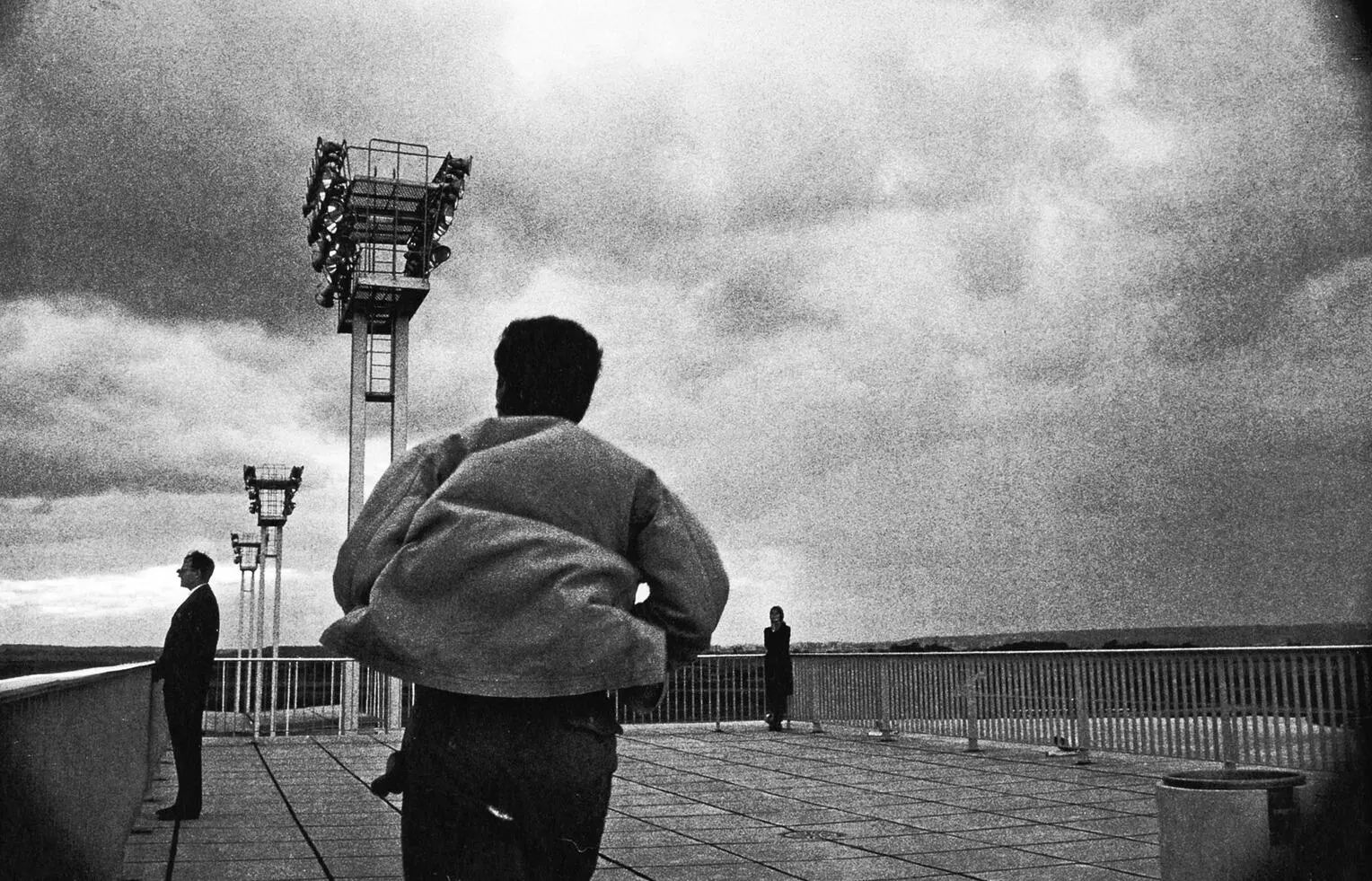
Credit 11.1
He lies in a hammock. A mask, with electrodes, covers his eyes. A large hypodermic needle injects drugs into his veins, while background voices whisper in German. He suffers. They continue. On the tenth day, images begin to ooze, like confessions. A peacetime morning. A peacetime bedroom—a real bedroom. Real children. Real birds. Real cats. Real graves. On the sixteenth day he is on the pier at Orly. Empty.
Sometimes he sees a woman, who might be the one he seeks. She is standing on the pier, or driving a car, smiling. A headless body is carved in ruined stone. These are images from a timeless world. He recovers from his trance, but the experimenters send him back again.
This time, he is close to her, speaks to her. She welcomes him without surprise. They are without plans, without memories. Time builds itself simply around them, their only landmarks the flavor of the moment and the markings on the walls. They explore a natural history museum, filled with animals from other times. For her, he is a man of mystery—vanishing periodically, wearing a curious necklace, dog tags from the war to come. She calls him her Ghost. It occurs to him that in his world, his time, she is already dead.
Many people, seeing La jetée with no foreknowledge, are not aware that they are seeing a series of still images. Then, twenty minutes into the film, the woman, asleep, her hair askew on her pillow, opens her eyes, looks directly at the viewer, breathes, and blinks. Time shudders, becomes momentarily real again. The frozen images have been timeless—memories, crystalized. Perhaps memory is the time traveler’s subject. Marker once said, “I will have spent my life trying to understand the function of remembering, which is not the opposite of forgetting, but its other side.” And he liked to quote George Steiner: “It is not the past that rules us—it is the image of the past.” Jetée is a pun, too: j’étais, I was.
The hero (if that’s what he is) carries out a mission not of his choosing. His masters send him not only to the past but then to the future, too. Humans have survived, and so, concealing his eyes behind military-style sunglasses, he begs them to do what is necessary to enable their own existence. They must help, he says. They must: their very survival proves it. Here is paradox again: the narrator says, “This sophism was taken for fate in disguise.” When he returns to the past, as we know he must— somewhere inside him, the memory of a twice-lived fragment of time —his destination is Orly Airport. It is Sunday. He knows that the woman will be at the end of the pier. The wind ruffles her hair. She almost smiles. As he runs toward her, it occurs to him that somewhere, too, holding on to the railing, will be the child he once was. And then: There was no way to escape Time. He understands. On ne s’évadait pas du Temps. The future has followed him here. Only at the last instant does he realize whose death he had witnessed as a child.
*1 A rebellious elector in Virginia refused to cast his ballot for the vote winners, Richard Nixon and Spiro Agnew, in 1972 and voted instead for John Hospers, on the Libertarian line.
*2 Gödel’s proof “is more than a monument,” said John von Neumann, “it is a landmark which will remain visible far in space and time….The subject of logic has completely changed its nature and possibilities with Gödel’s achievement.”
*3 Also, the Gödelian universe does not expand, whereas most cosmologists are pretty sure that ours does.
*4 Gödel’s biographer Rebecca Goldstein remarked, “As a physicist and a man of common sense, Einstein would have preferred that his field equations excluded such an Alice-in-Wonderland possibility as looping time.”
*5 The Heinlein story inspired a 2014 film, Predestination, with Ethan Hawke and Sarah Snook playing instances of the time traveler.
*6 Wells might have admired this descriptive flourish: “The general impression which the contrivance gave was that of unreality. The right-angles, at which various bars joined each other, did not seem to be quite ninety degrees. The perspective was distinctly off; for regardless from which side one viewed it, the more distant side always seemed to be the larger.”
*7 Ralph Milne Farley, “The Man Who Met Himself” (1935). Of course the man is in a ten-year loop, too. He uses the time to make money in the stock market.
*8 Rudy Rucker, a mathematician and, later, an author of science fiction.
*9 The self-description he ultimately settled on: “filmmaker, photographer, traveler.”
TWELVE
What Is Time?
Why is it so difficult—so degradingly difficult—to bring the notion of Time into mental focus and keep it there for inspection? What an effort, what fumbling, what irritating fatigue!
—Vladimir Nabokov (1969)
PEOPLE KEEP ASKING what time is, as if the right combination of words could slip the lock and let in the light. We want a fortune-cookie definition, a perfect epigram. Time is “the landscape of experience,” says Daniel Boorstin. “Time is but memory in the making,” says Nabokov. “Time is what happens when nothing else does”—Dick Feynman. “Time is nature’s way to keep everything from happening all at once,” says Johnny Wheeler or Woody Allen. Martin Heidegger says, “There is no time.” *1
What is time? Time is a word. The word refers to something, or some things, but surprisingly often the conversation goes off track when people forget whether they’re arguing about the word or the thing(s). Five hundred years of dictionaries have created the assumption that every word must have a definition, so what is time? “A nonspatial continuum in which events occur in apparently irreversible succession from the past through the present to the future” ( American Heritage Dictionary of the English Language, fifth edition). A committee of lexicographers labored over those twenty words and must have debated almost every one. Nonspatial? That word is not to be found in this very dictionary, but all right, time is not space. Continuum? Presumably time is a continuum—but is that known for sure? “Apparently irreversible” seems a hedge. You sense they’re trying to tell us something they hope we already know. The challenge is not so much to inform us as to offer some discipline and care.
Читать дальшеИнтервал:
Закладка:
Похожие книги на «Time Travel»
Представляем Вашему вниманию похожие книги на «Time Travel» списком для выбора. Мы отобрали схожую по названию и смыслу литературу в надежде предоставить читателям больше вариантов отыскать новые, интересные, ещё непрочитанные произведения.
Обсуждение, отзывы о книге «Time Travel» и просто собственные мнения читателей. Оставьте ваши комментарии, напишите, что Вы думаете о произведении, его смысле или главных героях. Укажите что конкретно понравилось, а что нет, и почему Вы так считаете.

